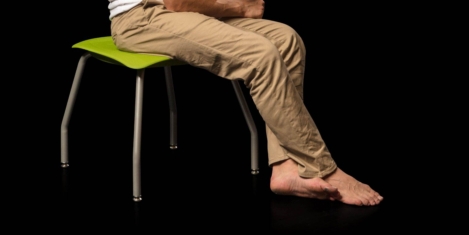August 25, 2017
Half of UK workers plan to leave their current job over the next year

Fifty percent of full or part-time workers in the UK want to leave their current job in the next 12 months claims a new study conducted by Citation. London businesses will be the worst hit, with two thirds (64 percent) of workers in the capital planning on eyeing up other employers. Furthermore, those aged between 18 and 24 are most likely to jump ship (64 percent), and men are 10 percent more likely to leave than women. For two in five workers, it’s salaries that’s forcing them to look elsewhere – this is most likely to be the key driver for 18 to 34-year-olds. Better career prospects (22 percent), drab company cultures (16 percent), dislike of managers (11 percent) and loathing of their job (10 percent) were other reasons given for wanting to leave. With, according to a study by Oxford Economics the average cost of recruitment costing £30,000, UK business owners look set for a costly year ahead. (more…)











 Employees who feel trusted by their employer to manage how and when they work for themselves can improve their levels of productivity, a new survey suggests. The research by Peldon Rose claims that UK workers rate feelings of trust and autonomy from employers and colleagues as increasingly important in keeping them productive and happy in the workplace. But the survey also shows that many employers are failing to provide employees with the resources and support they need to manage their workload and keep them motivated. Although the majority of staff (59 percent) say they work most productively in the office, a third (33 percent) wish they were more trusted to manage how and when they work and 42 percent say that their office does not support a culture that allows them to work flexibly. Despite the clear value that staff place on trust and autonomy, employers are overlooking an opportunity to create a confident and self-motivated workforce.
Employees who feel trusted by their employer to manage how and when they work for themselves can improve their levels of productivity, a new survey suggests. The research by Peldon Rose claims that UK workers rate feelings of trust and autonomy from employers and colleagues as increasingly important in keeping them productive and happy in the workplace. But the survey also shows that many employers are failing to provide employees with the resources and support they need to manage their workload and keep them motivated. Although the majority of staff (59 percent) say they work most productively in the office, a third (33 percent) wish they were more trusted to manage how and when they work and 42 percent say that their office does not support a culture that allows them to work flexibly. Despite the clear value that staff place on trust and autonomy, employers are overlooking an opportunity to create a confident and self-motivated workforce.
 The creative industries sector accounted for over a third 35 percent) of take-up in the regional office market in the first half of the year, with this sector in particular driving the co-working revolution and the provision of flexible office space. Latest figures in CBRE’s H1 2017 Property Perspective, which monitors the performance of ten regional cities, overall, the UK’s regional office markets saw continued demand in the first half of 2017, with office take-up reaching 2.8 million sq ft, only slightly lower than the five-year average. For the first half of 2017, several cities witnessed improved levels of take-up when compared with the first half of 2016, these include Aberdeen, Edinburgh, Leeds and Manchester. Select locations such as Reading, Maidenhead and Watford also saw a continuation of record rents being set during the first half of the year, which has largely been driven by the delivery of new developments.
The creative industries sector accounted for over a third 35 percent) of take-up in the regional office market in the first half of the year, with this sector in particular driving the co-working revolution and the provision of flexible office space. Latest figures in CBRE’s H1 2017 Property Perspective, which monitors the performance of ten regional cities, overall, the UK’s regional office markets saw continued demand in the first half of 2017, with office take-up reaching 2.8 million sq ft, only slightly lower than the five-year average. For the first half of 2017, several cities witnessed improved levels of take-up when compared with the first half of 2016, these include Aberdeen, Edinburgh, Leeds and Manchester. Select locations such as Reading, Maidenhead and Watford also saw a continuation of record rents being set during the first half of the year, which has largely been driven by the delivery of new developments.






















